Ep. 69: Larry Feinberg – CEO & co-founder of KnipBio ||
.
On episode 69 of Sourcing Matters we welcome Larry Feinberg – CEO & Co-founder of KnipBio. A Boston-Based technology company pioneering advanced nutritional solutions for animal feeds since 2013, KnipBio offers a range of single cell protein products that come from non-food feedstocks. It’s their mission to secure the quality and safety of food globally, in a sustainable, cost-effective way. KnipBio has just recently eared a GRAS Green Light from FDA for Novel Aquafeed Protein. The sky is now the limit for these social innovators set on using financial return to do more good.
.
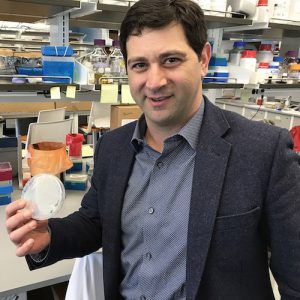 Accounting for over 50% of total seafood sourced, aquaculture has developed some scale issues.. It’s not as simple as saying that we’ll continue to move in the direction of farming more fish. It’s not just about the higher trophic level fish we consume. The issue is that much of the aquaculture infrastructure is reliant on pulling from the smaller fish in the sea – to feed the larger fish we consume. The alternative feedstuff for our aquaculture fish can also often soy, or other crops grown on land using input-based conventional practice leading to an unsustainable perpetual cycle of robbing Peter to pay Paul.
Accounting for over 50% of total seafood sourced, aquaculture has developed some scale issues.. It’s not as simple as saying that we’ll continue to move in the direction of farming more fish. It’s not just about the higher trophic level fish we consume. The issue is that much of the aquaculture infrastructure is reliant on pulling from the smaller fish in the sea – to feed the larger fish we consume. The alternative feedstuff for our aquaculture fish can also often soy, or other crops grown on land using input-based conventional practice leading to an unsustainable perpetual cycle of robbing Peter to pay Paul.
.
Prior to launching this revolutionary company, Larry Feinberg, PhD. completed his doctoral studies at the University of Massachusetts where he focused on biogeochemistry, physiology and genetics of hyperthermophilic microbes. He has deep expertise in early-stage technology ventures and bio-product discovery. At Mascoma Corporation, he led the Organism Discovery group and New Business Opportunities team.
.
Tune to hear more about the state of the oceans, our fisheries and the future of aquaculture. In our 40 minute conversation we learn about how Larry and his team at KnipBio are set on developing a more sustainable model for producing enough seafood to feed half the world by looking at from a microscopic POV.
.


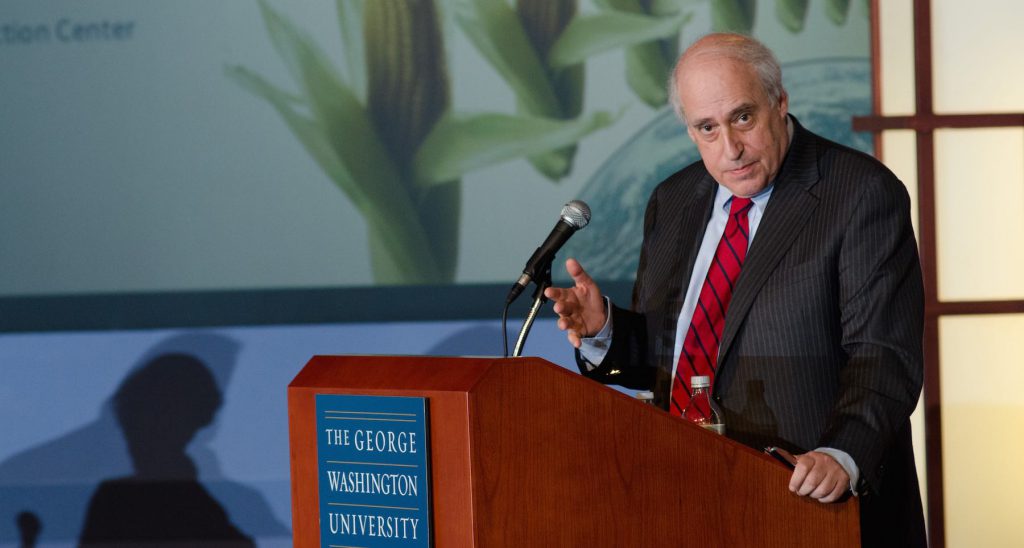
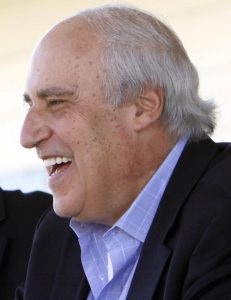 Additionally, Sec. Glickman is the 6th member of the PEW commission on industrial farm animal production that we’ve profiled on Sourcing Matters. The 2007 PEW commission report was a study of the Impact of Industrial (US) Farm Animal Production on issues of public health, environment, animal welfare and social justice. It was a monumental series of reports that has established a new way forward for consumers and the industry to re-introduce values and ethics back into many of the proteins we eat.
Additionally, Sec. Glickman is the 6th member of the PEW commission on industrial farm animal production that we’ve profiled on Sourcing Matters. The 2007 PEW commission report was a study of the Impact of Industrial (US) Farm Animal Production on issues of public health, environment, animal welfare and social justice. It was a monumental series of reports that has established a new way forward for consumers and the industry to re-introduce values and ethics back into many of the proteins we eat.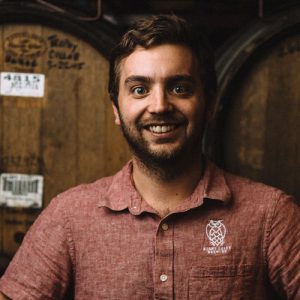 Spawned in the birthplace of agriculture, society and culture – this original fermented brew was first stumbled upon back in the 5th millennium BC. Since, that process of mixing four simple ingredients – water, malt, hops and yeast – has been keeping gut health balanced, our drinking water clean, and smiles on our faces all over the world. As I get older, that keeping gut balanced means not just a healthy microflora, but keeping our beer guts in check, and not hanging over the belt!
Spawned in the birthplace of agriculture, society and culture – this original fermented brew was first stumbled upon back in the 5th millennium BC. Since, that process of mixing four simple ingredients – water, malt, hops and yeast – has been keeping gut health balanced, our drinking water clean, and smiles on our faces all over the world. As I get older, that keeping gut balanced means not just a healthy microflora, but keeping our beer guts in check, and not hanging over the belt!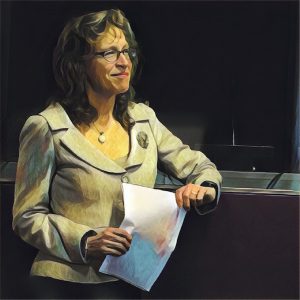 During our 45 minute conversation we gain Dr. Jahn’s perspective on what it’ll take to address climate change on a planet of 7.6 billion people. We also discuss how our current approach in producing food and using water are in fact one of the most pressing National security concerns. Dr. Jahn shares how the Government shutdown at the end of ’18 / early ’19 is impacting real science which so vital in dealing with climate issues in a timely fashion. And, how that science is now losing traction under current governance.
During our 45 minute conversation we gain Dr. Jahn’s perspective on what it’ll take to address climate change on a planet of 7.6 billion people. We also discuss how our current approach in producing food and using water are in fact one of the most pressing National security concerns. Dr. Jahn shares how the Government shutdown at the end of ’18 / early ’19 is impacting real science which so vital in dealing with climate issues in a timely fashion. And, how that science is now losing traction under current governance.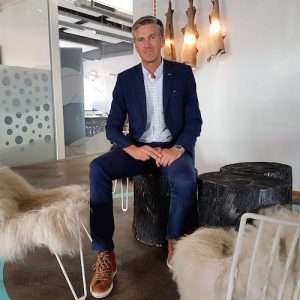 Beginning with the Ocean Cluster House in Reykjavik harbor – The Iceland Ocean Cluster is now pooling together satellite locations in coastal cities of the US, and eventually the World – in effort to work in unison in tackling many of the biggest problems facing our shrinking planet. Each cluster site will be filled with like minded entrepreneurs and a business ecosystem to support and invest in a replicable model for a modern marine innovation economy. During our 40 minute conversation we learn that fishing communities around the globe have many similar fish-to-fry. We learn that there are fundamental problems with an antiquated seafood industry, and in dealing with our warming Oceans which need new perspective – now!
Beginning with the Ocean Cluster House in Reykjavik harbor – The Iceland Ocean Cluster is now pooling together satellite locations in coastal cities of the US, and eventually the World – in effort to work in unison in tackling many of the biggest problems facing our shrinking planet. Each cluster site will be filled with like minded entrepreneurs and a business ecosystem to support and invest in a replicable model for a modern marine innovation economy. During our 40 minute conversation we learn that fishing communities around the globe have many similar fish-to-fry. We learn that there are fundamental problems with an antiquated seafood industry, and in dealing with our warming Oceans which need new perspective – now!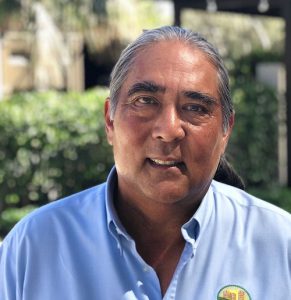 A.G. Kawamura is third generation fruit and vegetable grower and shipper from Orange County. He is the former Secretary of the California Department of Food and Agriculture (2003-2010). As a progressive urban farmer, A.G. has a lifetime of experience working within the shrinking rural and urban boundaries of Southern California. Through his company, Orange County Produce, LLC, he is engaged in building an exciting, interactive 21st century 100 acre agricultural showcase at the Orange County Great Park in Irvine, CA.
A.G. Kawamura is third generation fruit and vegetable grower and shipper from Orange County. He is the former Secretary of the California Department of Food and Agriculture (2003-2010). As a progressive urban farmer, A.G. has a lifetime of experience working within the shrinking rural and urban boundaries of Southern California. Through his company, Orange County Produce, LLC, he is engaged in building an exciting, interactive 21st century 100 acre agricultural showcase at the Orange County Great Park in Irvine, CA.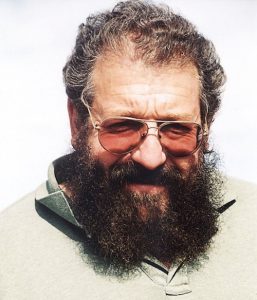 Bernard Rollin is a distinguished professor of philosophy, animal sciences, and biomedical sciences at Colorado State University. Rollin is a leading scholar in animal rights and animal consciousness. Dr. Rollin has authored numerous influential books in the field, including Animal Rights and Human Morality (1981), The Unheeded Cry: Animal Consciousness, Animal Pain and Scientific Change (1988), Farm Animal Welfare (1995), and Science and Ethics (2006). Bernie joins us for episode 59: Our Animal Consciousness.
Bernard Rollin is a distinguished professor of philosophy, animal sciences, and biomedical sciences at Colorado State University. Rollin is a leading scholar in animal rights and animal consciousness. Dr. Rollin has authored numerous influential books in the field, including Animal Rights and Human Morality (1981), The Unheeded Cry: Animal Consciousness, Animal Pain and Scientific Change (1988), Farm Animal Welfare (1995), and Science and Ethics (2006). Bernie joins us for episode 59: Our Animal Consciousness.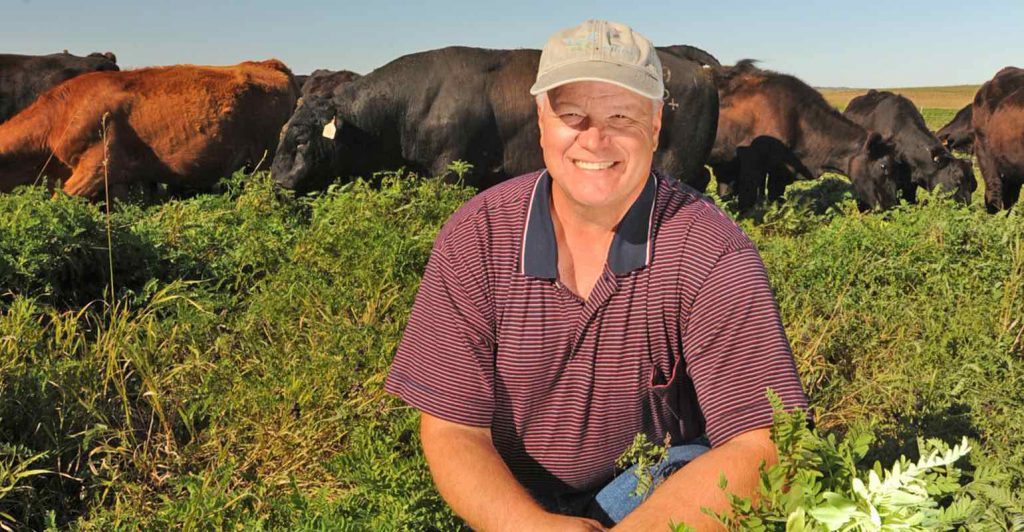
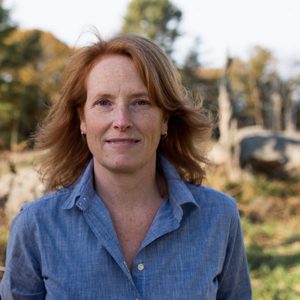 In our 45 minute conversation we discuss the ins and outs of investing in regional and sustainable food systems of the Northeast and beyond. CEI is a mission-driven lender and investor specializing in rural business development and financing. In Maine, and throughout the U.S., CEI helps to create economically and environmentally healthy communities in which all people, especially those with low incomes, can reach their full potential. CEI is unique with its dossier of offerings which include business loans, micro-loans, new market tax credits, sub-debt loans, SBA 504 loans, business plans, marketing plans, business advising, financial advising, and public policy leadership.
In our 45 minute conversation we discuss the ins and outs of investing in regional and sustainable food systems of the Northeast and beyond. CEI is a mission-driven lender and investor specializing in rural business development and financing. In Maine, and throughout the U.S., CEI helps to create economically and environmentally healthy communities in which all people, especially those with low incomes, can reach their full potential. CEI is unique with its dossier of offerings which include business loans, micro-loans, new market tax credits, sub-debt loans, SBA 504 loans, business plans, marketing plans, business advising, financial advising, and public policy leadership.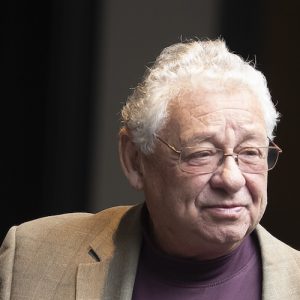 In early November 2018 Goldberg hosted The “ChooseFood” symposium in Baltimore. It was a gathering to evaluate some of the core ethical questions of food and its production. Top brass speakers shared insight on ethics of in food labor, environmental impact, externalities, animal welfare, health risk factors & new tech – all were on the docket. Coming it at from the food animal side It was a fascinating exercise for me to see how far we’ve come since the 2007 PEW commission report, what more needs to be done with food animal production, and how broad the aperture has grown to encapsulate ethics into our food and global production.
In early November 2018 Goldberg hosted The “ChooseFood” symposium in Baltimore. It was a gathering to evaluate some of the core ethical questions of food and its production. Top brass speakers shared insight on ethics of in food labor, environmental impact, externalities, animal welfare, health risk factors & new tech – all were on the docket. Coming it at from the food animal side It was a fascinating exercise for me to see how far we’ve come since the 2007 PEW commission report, what more needs to be done with food animal production, and how broad the aperture has grown to encapsulate ethics into our food and global production.